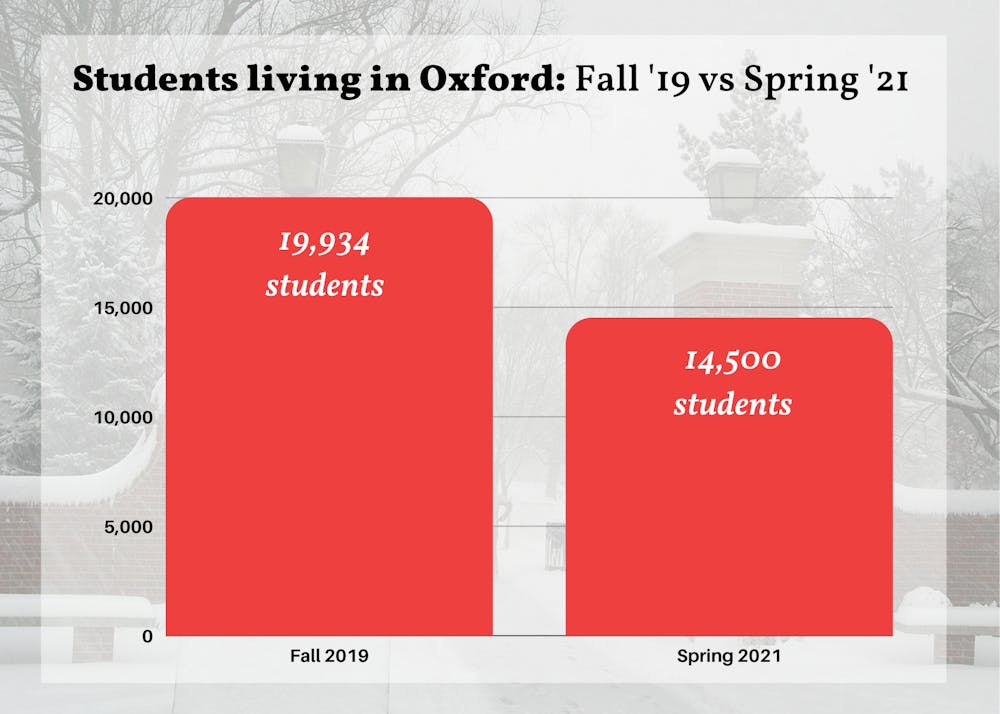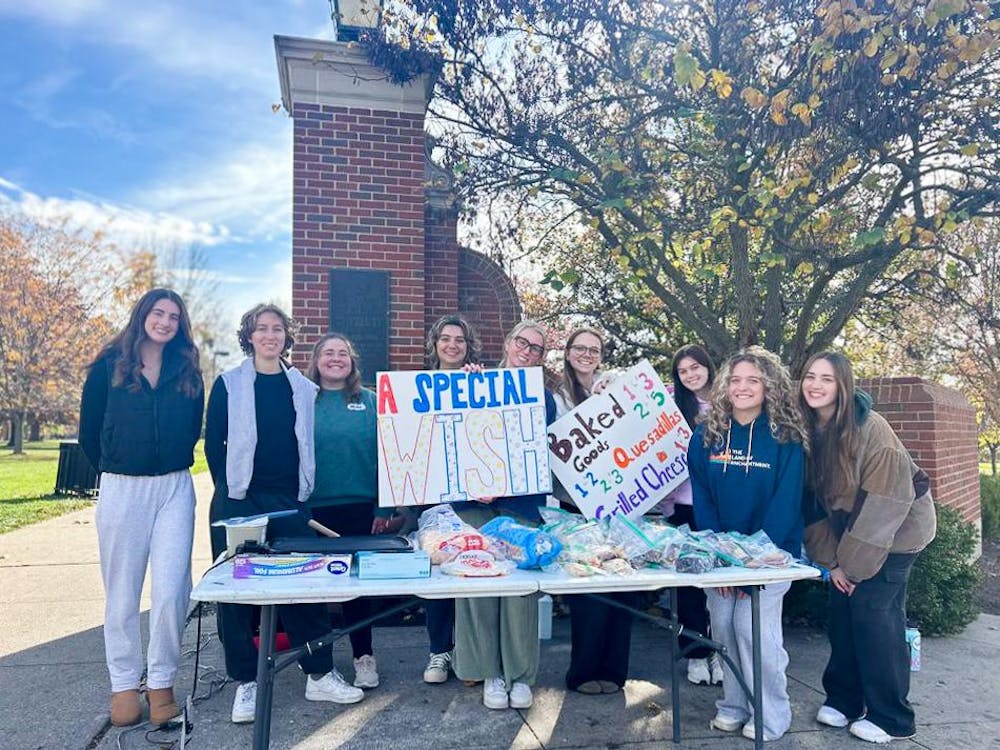Approximately 14,500 Miami University students are living in Oxford this semester, undercutting population estimates many university officials were expecting.
Of the 14,500 reported students, Miami’s Director of Residence Life Vicka Bell-Robinson wrote in an email to The Miami Student that nearly 5,000 of those students were living on campus.
For comparison, Miami reported nearly 20,000 students studying in Oxford for the fall 2019 semester, suggesting around 5,000 students usually in Oxford — or 25% — have decided to study elsewhere this semester.
While 500 more students returned to residence halls this spring, places like Withrow Hall still hold rooms that have not seen students for about a year. Withrow Hall Resident Director (RD) Nick Stanford said out of the 470 available beds, 281 are still empty and have been so since the start of the pandemic.
“I definitely was expecting more students to come back this semester,” Stanford said. “But I could see why some would want to stay home.”
That same sentiment was echoed by Brian Woodruff, director of campus services, who said he expected around 6,000 students in residence halls this semester – a thousand more than the actual number.
A resident assistant (RA) from Western Campus reported their hall as seemingly empty.
“I have heard that we are supposed to be around 80% occupancy this semester,” the Western Campus RA said. “But I find that hard to believe just based on what I’m seeing,”
Junior biochemistry and premedical studies major Sun-Wong Kim, an international student who is studying from home, thinks international representation might play a role in the low numbers.
“I mean, I just felt like it was way too risky of a move to come here,” Kim said. “I can’t see other international students coming in either, really.”
Kim, a native of Vancouver, Canada, cited travel, expenses and safety concerns as reasons he chose not to come back this school year.
“Coming from Canada into the United States around [the fall semester] wouldn’t have been that much of an issue, but the politics and the pandemic told me there wasn’t a guarantee I’d be able to go back home after that,” Kim said. “I also just felt like the United States got hit harder from it all, so to travel into the country, I felt it just wasn’t worth it.”
Enjoy what you're reading?
Signup for our newsletter
Many reports suggest that the U.S. was hit a lot harder by COVID-19 than Canada and other places in the world. The New York Times reported as of Feb. 5, the U.S had seen 81,000 positive cases per 1 million people and 456,000 deaths total, while Canada has had only 23,000 cases per 1 million and a little more than 20,000 deaths total.
Kim said by not coming to Oxford, he wouldn’t be paying for housing, parking, meal plans and other university expenses, so it would be cheaper of an option. General fee credit would also be larger for choosing to go remote rather than going in-person.
While there was a lot to gain from going remote, Kim said there was one thing he lost out on by not coming back.
“I think the only thing that I lose by not coming back is my boys,” Kim said. “The way it’s shaped up right now, I’ll be back next semester, but I definitely miss my roommates and all my Oxford friends. It just sucks I lost all those memories I could have experienced this semester.”




